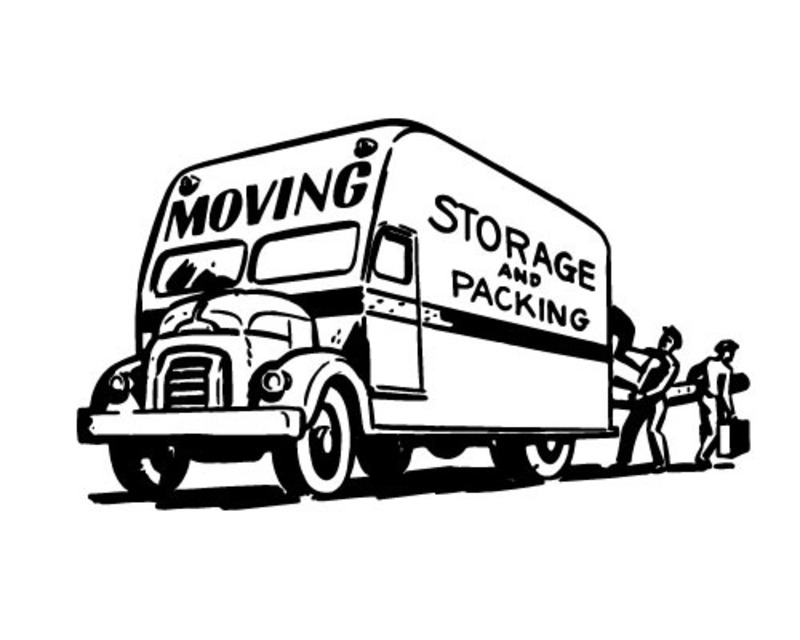Grasping Relocation Coverage
Posted on 10/10/2024
Relocating to a new city or country for work can be an exciting, yet daunting endeavor. One crucial aspect to understand when accepting a job offer that involves moving is relocation coverage. In this comprehensive guide, we will delve into the intricacies of relocation coverage, offering valuable tips, pros and cons, key takeaways, and concluding thoughts.
What is Relocation Coverage?
Relocation coverage, also known as relocation assistance or a relocation package, refers to the financial support and assistance an employer provides to facilitate an employee's move for work-related reasons. Whether you are a new hire or a current employee being transferred to a different location, understanding what relocation coverage entails can help ease the transition and ensure you are adequately supported.

Components of Relocation Coverage
Relocation coverage can vary significantly from one employer to another. However, it typically includes several key components:
1. Moving Expenses
This aspect of relocation coverage includes costs associated with physically moving your belongings. It may cover hiring professional movers, renting moving trucks, packing supplies, and even temporary storage solutions.
2. Travel Expenses
Travel expenses refer to costs incurred during the actual move, such as airfare, train tickets, gas, and lodging. Some employers may also cover the expense of house-hunting trips before the official move.
3. Temporary Housing
Temporary housing can be a significant relief, especially if you need time to find a permanent residence in your new location. Employers may provide a stipend for temporary accommodation or arrange for a short-term rental or hotel stay.
4. Real Estate and Mortgage Assistance
Selling a home and buying a new one can be stressful and costly. Some relocation packages include assistance with real estate agent fees, closing costs, and even losses incurred on the sale of the old home. Mortgage assistance may also be provided to help with down payments and the initial costs of securing a new property.
5. Miscellaneous Expenses
Other expenses that may fall under relocation coverage include utility setup costs, vehicle registration fees, and, in some cases, spouse employment assistance or child care services. The goal is to alleviate as many relocation-related expenses as possible to ensure a smooth transition.
Pros and Cons of Relocation Coverage
Pros
- Financial Relief: Relocation coverage can significantly reduce the financial burden of moving, making the transition smoother and more affordable.
- Employee Satisfaction: Offering comprehensive relocation assistance can improve employee satisfaction and retention, showcasing the company's commitment to its employees' well-being.
- Smooth Transition: With financial stress minimized, employees can focus on settling into their new roles and environments more effectively.
Cons
- Limited Coverage: Not all employers offer comprehensive relocation packages. It's essential to clarify what is and isn't covered before making a move.
- Tax Implications: Some elements of relocation coverage may be considered taxable income, potentially affecting your net financial benefit.
- Negotiation Required: You may need to negotiate the terms of your relocation coverage, which can be a time-consuming and challenging process.
Tips for Navigating Relocation Coverage
1. Understand Your Package: Before accepting a job offer, thoroughly review the relocation package to understand what is covered and any limitations.
2. Keep Receipts: Maintain detailed records and receipts of all expenses related to your move. This will be crucial for reimbursement and potential tax purposes.
3. Communicate with Your Employer: Keep open lines of communication with your employer's HR department to clarify any questions or concerns you may have.
4. Plan Ahead: The more you plan and organize your move, the smoother the transition will be. Create a checklist and timeline to manage tasks effectively.

Key Takeaways
- Relocation coverage is financial support provided by employers to assist with work-related moves.
- Typical components include moving expenses, travel expenses, temporary housing, real estate, and mortgage assistance, and miscellaneous expenses.
- Understanding the pros (financial relief, employee satisfaction, smooth transition) and cons (limited coverage, tax implications, negotiation) is essential.
- Tips include understanding your package, keeping receipts, communicating with your employer, and planning ahead.
Conclusion
Grasping the full scope of relocation coverage is crucial for anyone considering a work-related move. By understanding what is typically included, the pros and cons, and implementing practical tips, you can ensure a smooth and financially sound transition. Employers that offer comprehensive relocation packages not only ease the burden of moving for their employees but also demonstrate a commitment to their workforce's well-being. Make sure to thoroughly review and negotiate your relocation coverage to fully benefit from the support available.
By keeping these factors in mind, you'll be better prepared to handle the complexities of relocating, allowing you to focus on the exciting opportunities that lie ahead in your new role and environment.














